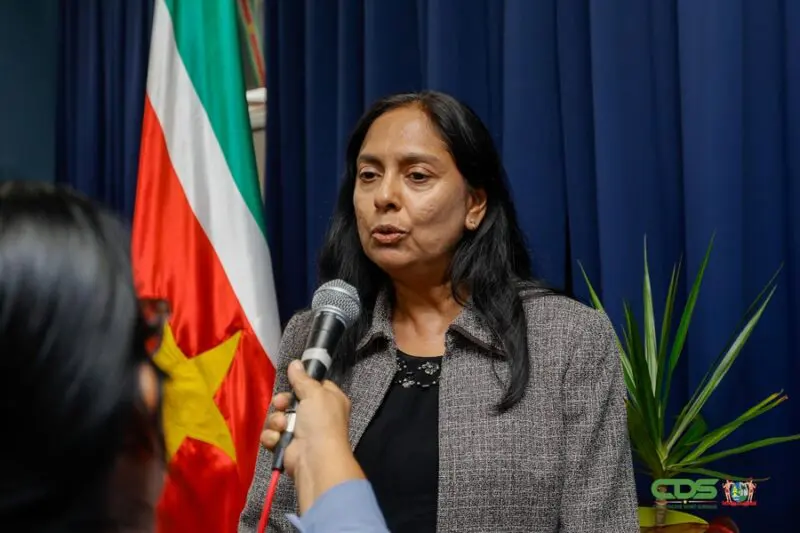PARAMARIBO, SURINAME – Malty Dwarkasing has resigned as Suriname’s Administrator-General of the National Debt Office. Dwarkasing submitted her resignation to the country’s Minister of Finance Adelien Wijnerman on September 12.
The National Debt Office, a key arm of the Ministry of Finance and Planning, is responsible for managing and monitoring the country’s public debt. Since 2022, Dwarkasing, a technocrat, has been the leading figure and public face of the Bureau.
The resignation comes close on the heels of several appointments of persons associated with the last NDP government (2015-2020), which was linked to Suriname’s debt challenges. These persons have returned to influential advisory roles in the country’s financial system.
Since taking office, the Jennifer Geerlings-Simons’ NDP government has been under scrutiny over its financial policies. History weighs heavily: when NDP founder Desi Bouterse took office in 2010, Suriname’s national debt was 18% of its Gross Domestic Product (GDP). By the end of his tenure, a decade later, it had surged to 146%. Now, President Geerlings-Simons faces expectations to show her party’s ability to manage the nation’s finances responsibly.
The previous Chan Santokhi VHP government prioritized stabilizing public finances and reducing the debt burden. However, this came at the cost of unpopular austerity measures, including cuts to fuel and electricity subsidies – policies that ultimately contributed to its defeat in the May 2025 elections.
President Santokhi launches oil royalty program for all citizens | OilNOW
Observers now warn that the difficult but necessary reforms may give way to more short-term and popular policies that could harm the country’s finances.
In 2025, Suriname faces a critical juncture: debt levels remain high, expected oil revenues are still years away and citizens continue to experience the effects of inflation and reduced purchasing power.
In this context, credibility plays an important role. The resignation of the head of the National Debt Office, amid the reappointment of figures associated with earlier debt challenges, has drawn attention.



